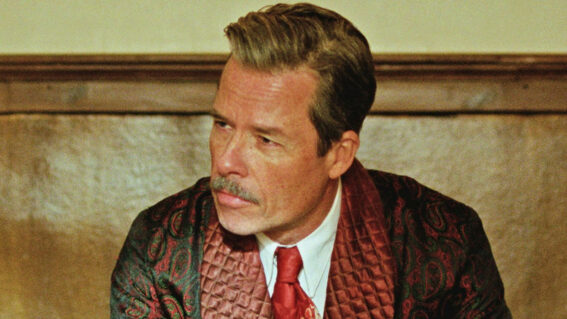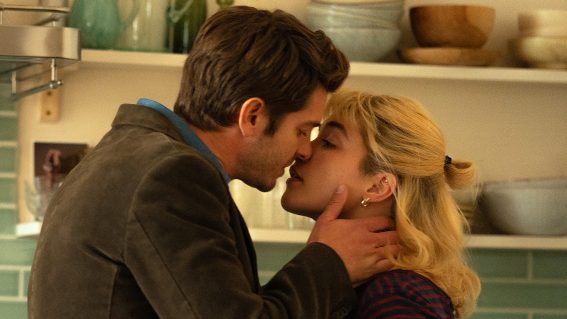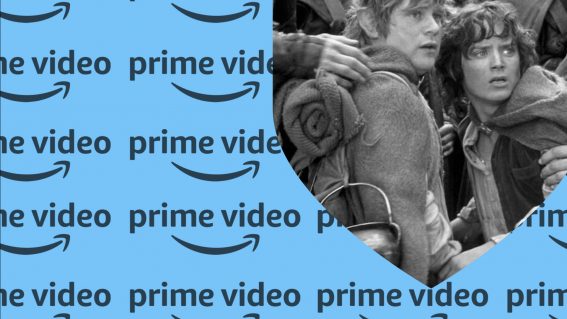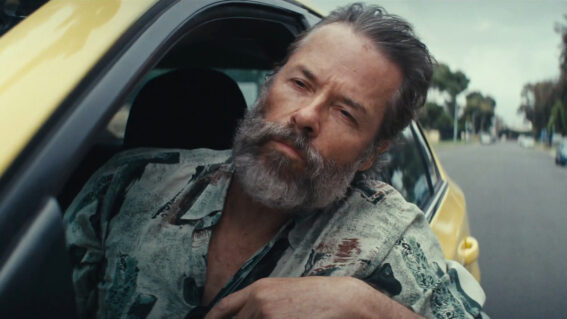What to expect from Devs, Alex Garland’s mind-blowing sci-fi series
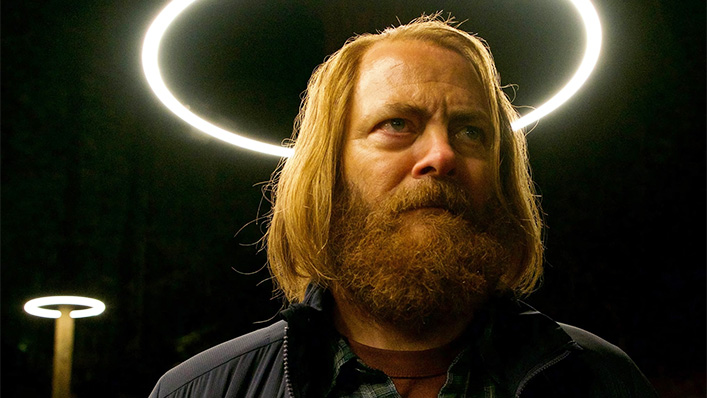
Annihilation and Ex Machina writer/director Alex Garland’s new TV series fleshes out a mind-boggling premise, involving a highly secretive tech company. Critic Luke Buckmaster comes to terms with an intensely weird experience.
The ever-escalating nature of the streaming wars has led to a competitively creative environment, with deep-pocketed players backing bold projects in the hope of standing out from the pack. The search for marketable points of difference amid a glut of content suits somebody like Alex Garland to a tee, given the auteur seems to like spearheading the kind of projects that make film studios go weak-kneed.
In the novelist-cum-filmmaker’s feature debut, the AI-themed 2014 chamber piece Ex Machina, Garland was able to uncompromisingly explore big issues – a sentient machine’s realisation of mortality, for instance – by keeping the budget low and pitching the experience as a thinking person’s counterpoint to sloshy mainstream spectacle. His next film, Annihilation, was a ballsier and more expensive affair. Famously sledged for being “too intellectual” by a suit at Paramount, the studio flogged it off to Netflix where it found an online home.
Now comes Devs, an intensely audacious eight-part series Garland created, wrote and directed. The show’s underpinning attitude can be best encapsulated by conjuring in your mind the following scene. Garland telephones producer David Ellison – the Paramount exec who dished out the aforementioned sledge – and screams down the line “TOO INTELLECTUAL? I’LL GIVE YOU TOO INTELLECTUAL!” before returning to his multi-compartmental electronic vari-desk, stocked with books about revolutionary trans-human augmentation and the robopocalypse.
This series is so weird the characters talk in code
The trippy, arty opener to the first episode – which includes visions of a monolith-like golden structure in a forest, and a triptych digital display depicting a girl blowing a dandelion – is one thing. The kinds of conversations the characters have in this very, very intellectual experience are quite another. Less than 10 minutes in, Sergei (Karl Glusman), a developer who joins a highly secretive project at a tech company called Amaya, led by the CEO Forest (Offerman), explains one predicament he is quizzed about as “a quantum type problem. Somewhere in the multiverse there is a world where the two strains sync.”
Uh-huh. Two strains sync, you say? If that sounds a tad complicated, the first episode also includes the following dialogue exchange (this is an exact transcripton) between two other Amaya employees:
“One”
“Two.”
“Three.”
“Five.”
“Eight.”
“Thirteen.”
“Twenty one.”
“Thirty four.”
“Fifty five.”
“Eighty nine.”
“One-four-four.”
“Two-three-three.”
“Three-seven-seven.”
“Six-one-o.”
“Nine-eight-seven.”
“One-five-nine-seven”
And it goes on like that. Did Garland write this scene or did he program it? What are they talking about? I don’t know – and I refuse to feel stupid for not understanding Fibonacci, or whatever it is these goobers are practising (please don’t contact me about this).
So, what the hell is Devs about?
What Devs itself is about is another, very valid question – albeit a difficult one. Two questions, in fact, given those titular four letters comprise both the title of the show and the name of the team Sergei joins, much mystery surrounding both. Early in the piece Sergei is taken by Forest into a stunning vacuum-sealed lab and shown a batch of code the team are working on.
Sergei, incredulous, exclaims that if the code he is looking at is real – not theoretical – “it literally changes everything.” This is a way for Garland to hint at the universe-realigning importance of the technology Amaya is creating. The details of it are teased out over the first few episodes, from something that initially seems intangible to a development the director finds ways to visually represent.
I won’t divulge what it looks like or with it is, suffice to say that some moments in the show reminded me of the 2006 Tony Scott film Déjà Vu, in which Denzel Washington discovers an amazing computer program that allows him to send inanimate objects into the past. Amaya’s invention – and what the company intends to use it for – is easily the most interesting part of Devs. Frustratingly, however, Garland’s focus often lies elsewhere, on tragic circumstances involving one of the employees rather than the big, chewy, mind-boggling concept he knows we’re all acutely interested in.

Nick Offerman’s character is like Doctor Manhattan
Nick Offerman’s intensely morose performance is the human highlight. The actor (recently very good in the musical drama Heats Beat Loud) looks like he fell out of a doomed fantasy epic: too chubby and too moody for that Gandalf origins show.
Offerman’s sort-of CEO, sort-of oracle character is handed loads of metaphor-strewn dialogue to chew over. But it’s those eyes, man, those eyes that really stay with you. They’re burdened and heavy, projecting a thousand-yard stare, knowledge of the dev team’s invention having transformed Forest’s perspective on life into a kind of Doctor Manhattan mindset. Particularly when it comes to the idea that increased knowledge about the state of the universe involves a growing acceptance that no one individual can profoundly change it.
Garland builds an intensely interesting slow-burning ambience and a tone that never feels remotely goofy. This is a drama you take seriously, and it’s clearly been designed to play out over a long arc. I’ve watched three episodes so far and anxiously await the rest, despite a sweltering fear that the characters will return to speaking Fibonacci. And I wish I could elaborate on that Marilyn Monroe cameo…but that would be telling.







